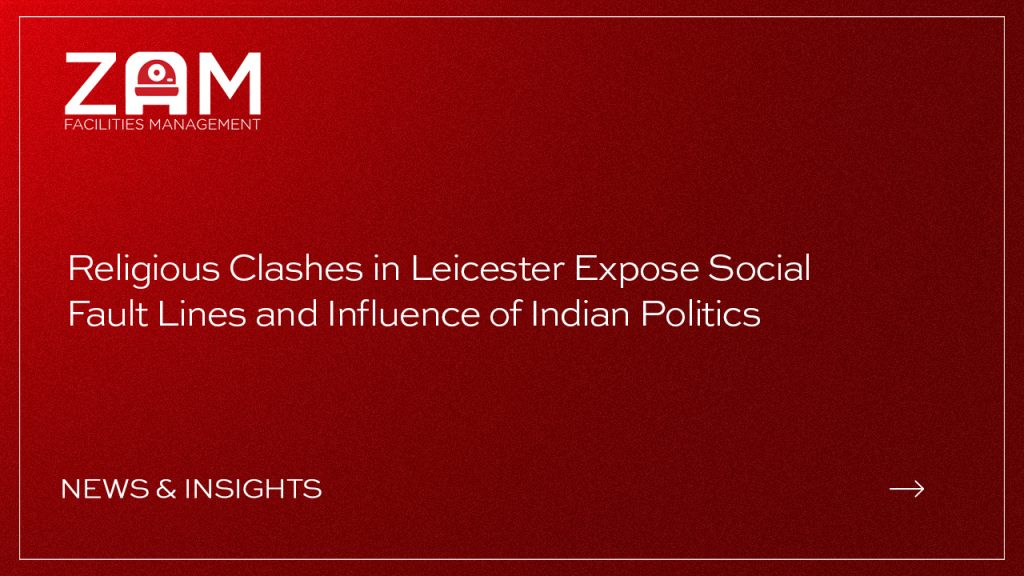LEICESTER, UK – Violent clashes between Hindus and Muslims on the streets of Leicester in September 2022 exposed simmering social divisions and the influence of Indian politics in Britain.
The unrest started on 17 September when around 300 masked Hindu men marched through the eastern part of the city, home to many Muslims, chanting religious slogans associated with Hindu nationalism in India. This led to counter-protests by Muslim groups.
Read More: New Powers Allow Police to Arrest Masked Protesters in England and Wales
With police overwhelmed, violence escalated as both sides headed to the Hindu-majority Belgrave Road area. A Hindu driver was slashed amid false rumours he tried to run over people. Hindu temples were vandalised. By morning, dozens were arrested.
The clashes thrust issues like austerity, immigration and Indian Prime Minister Narendra Modi’s majoritarian politics into the spotlight. Critics accused Mr Modi’s BJP party of inflaming tensions. Both Indian and Pakistani diplomats issued statements.
The unrest stunned Leicester, among Britain’s most diverse cities with large Indian-origin Hindu and Muslim populations. While racism and clashes have occurred before, Hindu-Muslim violence on this scale was unprecedented.
Locals debate the triggers, from a Hindu home being egged to a Hindu man stabbed days before the march. Many cite local factors like a struggling garment industry where job losses may have caused resentment.
Conservative politician Sanjay Modhwadia, who owns a now-shuttered garment factory, believes unemployment could have played a role. Mr Modhwadia, a Hindu, became a councillor after the riots on an anti-Labour plank.
But the role of Indian politics looms large. The riots confirmed fears that India’s sectarian tensions are spreading to Britain. With both communities asserting victimhood, their nationalist sentiments were reinforced from abroad.
The Leicester clashes forced difficult questions about multiculturalism, economic inequality and immigration under the spotlight. A year on, the unrest’s legacy persists through local social divisions and ongoing official investigations. While not widespread, the risk remains that political tensions from India could surface in episodic communal violence on British streets.
Contact Detail
For Security Contact Us!
- Number: +44 0161 791 5300
- Email: info@zamfm.co.uk
- Address: 1b First Floor, Bank House The Paddock, Handforth, Wilmslow, England, SK9 3HQ
